Larry Darter's Blog, page 8
April 7, 2017
Reading Deals: A Great Place to Get Free Kindle Books
There are so many free Kindle books available these days you could literally read as much as you want forever without ever having to buy a book for your Kindle. And no Kindle Unlimited subscription is required.
Thanks to the Indie publishing movement explosion, it's now easier than ever to get free Kindle books when you know where to look. If you don't already have your own go-to bargain book deal site, in this post, I'll introduce you to one of my favorites and will walk you through the process of finding and downloading the free Kindle books that you want to start reading.
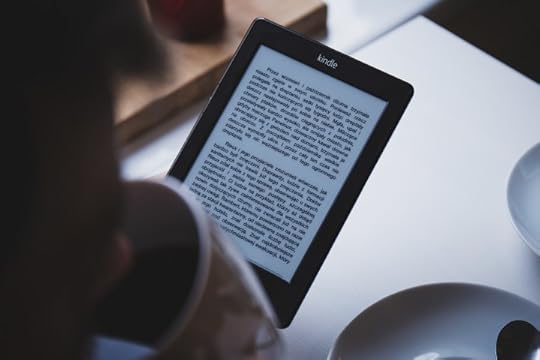
Every day, authors and publishers discount their books. Many give their books away absolutely free. They do this to gain more exposure for their books. Here is the reason why.
The good folks at Just Publishing Advice estimate that there are over 5 million Kindle eBooks available today. Unless an author is a household name or at least someone with a substantial following, just uploading a book to Amazon doesn't necessarily equate to book sales.
Unless looking for a specific book, or books by a favorite author, research shows that the way most Amazon customers browse for books works like this. They enter a search term, let's say "mystery bestsellers" or something similar related to their preferred genre, and hit enter. The Amazon algorithm goes to work. Customers get book recommendations that Amazon feels are most relevant to the search terms used. The results of a bestseller search run to five pages, each page showing 20 books, or the top 100 books in the genre searched.
Since Amazon is in business to sell books and wants to sell as many as possible, the recommendations given to customers are ranked results, with the number 1 best-selling book at the top of page 1 and the one-hundredth best-selling book at the end of page five. Research shows that most Amazon customers never look beyond the first page or two before choosing a book to buy. That explains the glut of free and heavily discounted Kindle eBooks.
Most books ranked between 41-100 won't even be seen much less purchased by most Amazon book buying customers. Now think about all those books that didn't make the top 100 bestsellers cut. The prospects of those books being discovered on Amazon or of being purchased are nothing short of abysmal. The books are literally invisible on the virtual Amazon bookshelves. Thus, most authors and publishers have no choice. They must offer their books at a heavy discount or even give them away free to have any hope of attracting a readership.
Enter the Kindle eBooks Discount and Freebies Sites
A whole cottage industry of free and cheap Kindle eBooks aggregators has sprung up on the web. They find the deals and freebies and then bring them to the attention of their subscribers with daily emails, on-site listings, and social media sharing. They make their money from fees charged to the authors and publishers who are willing to pay to have these sites market their discounted or free books.
There are many such sites out there on the Internet, but I'm only going to talk about one that I personally use and like. And in case you're wondering, I am not an affiliate of the site and do not receive compensation to promote them. I simply like the site, I use it constantly, and I visited it today and thought I'd share my own experiences with it for the benefit of anyone who likes discounted or free eBooks.
Reading Deals
Reading deals is one of the many cheap and free Kindle eBooks aggregators and promoters I mentioned. In this post, I'm focusing only on Reading Deals services for readers and won't be discussing the services they offer to authors and publishers.
Reading Deals is a very well-organized and user-friendly site. You can subscribe to the eBook deals email they send out every day and get your recommendations that way. Or, you can simply go to the website and click on the "Recent Deals" page to view them. There is even an option to search by genre for cheap and free books. Whether you love contemporary fiction, mysteries, thrillers, romance, sci-fi & fantasy, YA fiction, or even non-fiction titles, chances are you will find a great read at Reading Deals for 99 cents or free.
I have seen a few eBooks that are available in Nook, iTunes, and Kindle formats, but predominantly, it's Kindle eBooks you will find listed on Reading Deals. Besides subscribing to the daily emails or browsing the "Recent Deals" page, there is one other way to get free eBooks from Reading Deals. They offer a great may eBooks free in exchange for an honest review. To access those eBooks, you must sign up for the Reading Deals Review Club, which is absolutely free.
Once you sign up for the review club, you tell Reading Deals your favorite genre, and provide them with your Kindle email address. Then you can check the list of available books, and if you find one you want to read, you check it out free. The site sends the book directly to your Kindle, via your Kindle email address. You have 28 days to read the book and to submit your review. You have the option of posting your review to Amazon and Goodreads, but only the Amazon review is required. Being an author and knowing how important getting reviews is, I opted for the review club right away and have read some excellent books in return for a brief, honest review.
If you don't have a Kindle, no worries. You can still be a part of the review club. There is a free Kindle reading app that you can get for your smartphone or tablet. The app will assign you the Kindle email address which Reading Deals will use to send you free books. After you've installed the app, then you are all set to get your free Kindle books.
Just to clarify, if you aren't interested in the review club, you won't need to provide your Kindle email address because you won't be getting books directly from Reading Deals. Instead, you will just click on the link to a book that interests you and will be taken to the book page where it is available to download it directly.
If you see free Kindle eBooks that you want to read, download them right away. Authors and publishers are interested in making a living just like the rest of us, so most books are offered at a discount or for free only for a limited time. Prices change and change often. A book that is free today might not be free next week.
As an aside, the first book in the Ben Malone series, Come What May, while now back at regular price after the March Madness promotion last month, is available to read free in exchange for an honest review by joining the Reading Deals Review Club. It's listed there in the Mystery section. You can read an excerpt here on my website.
If you try out Reading Deals, I'd really appreciate it if you would post a comment here about your experiences with the site. Personally, I really love it.
April 1, 2017
Why I’ve Started Publishing on Wattpad
In this post, you will learn about an online storytelling community called Wattpad and the reasons why I've recently started publishing my work there. This is one of those rare posts that may be of interest to you whether you are primarily a reader or writer.

For the benefit of any who may not be familiar with it, Wattpad is an online storytelling community, social networking site for writers of all levels, and a reading app, all rolled into one.
At Wattpad users post written works like short stories, fanfiction, poems, and even full-length books. As mentioned, writers of all levels are welcome to open a free account and post their work. The site gives all writers an equal chance to get their work in front of potential readers and to hopefully build a following of people who like their work.
If you're a writer who is primarily interested in earning royalties from selling your stories, poems, or books, then Wattpad isn't going to benefit you in that way. It's a free site, both for those who post content and for those who read content. No royalties are paid.
It might be easy to imagine why a novice author who hasn't yet published anything might post free content at Wattpad. After all, the best way to learn the writing craft is to write and Wattpad provides a great place to do that. Another useful feature for new writers is that Wattpad readers can leave comments after reading a post. Readers might, as one example, choose to post a comment saying they enjoyed reading a piece of content, be it a short story, poem, or chapter from a book.
Readers might also suggest how a piece of writing could in their opinion be improved by changing it in some way. The point is, Wattpad is a great place for a new writer to get some valuable feedback from readers. I've found Wattpad to be a very supportive community in my short experience with the platform.
If you've followed this blog, then you know I'm not a novice writer. I've been writing for a good many years now. I have several self-published books. Since I do make a modest income from royalties from book sales, it might seem a bit strange that I'm willing to basically give my work away by posting it on Wattpad. In a way, that is true. I am giving away something that I might be able to sell. But authors giving away their work free isn't unusual in the crowded and competitive publishing business of today.
All you need to do is visit Amazon, and you will find a treasure trove of free eBooks, especially since the advent of KDP Select, an Amazon program where authors give Amazon exclusive digital rights to their book for 90-periods of time.
In return, Amazon gives a few benefits to those authors that aren't available to authors who don't sign up for KDP Select. One of those benefits is the opportunity to give away free eBooks for up to five days during each 90-day enrollment period.
Giving away free books isn't just limited to KDP Select enrollees. Giving away free books is believed to be a good way to build a readership, and most book marketing gurus advise authors, especially novice authors without a following, to use book giveaways as a means of getting their book in front of more potential readers.
While many experts agree that giving away free books doesn't work nearly as well as it once did, it still works to some degree and so is still a recommended practice. I enrolled Come What May in KDP Select for the first 90-days it was in publication and did offer the book free for three days. The book while free had nearly 1,500 downloads, which I was pleased about.
Unfortunately, I didn't see any benefit from giving away all those free eBooks. I'm certain that I didn't receive a single book review from anyone who downloaded the book for free. The thing that bothers me most about that is it really makes me wonder whether many of those people even read the book after downloading it.
I'm not one who is all about what I can earn from my writing. But if I'm going to spend a great many hours writing a book, spend the resources to have it edited, and to have a cover created for it, and then give it away free, I expect to get some other benefit from doing so. Getting reviews on Amazon is the best example of what I mean here.
Getting book reviews is extremely critical for authors, especially Indie authors. No book is ever going to sell successfully on Amazon without a great many reviews.
Common wisdom says a book needs a minimum of 10 reviews to succeed at all. The more reviews a book gets, the more success because, after certain numbers of reviews, Amazon actively starts supporting a book by making it more visible on the site.
Less than 10 reviews and a book goes into Amazon purgatory. It becomes less and less visible to the point where it will only be purchased by someone going to Amazon looking specifically for that book. No other Amazon customers will ever see it or even know it exists.
No money and no reviews mean that giving away nearly 1,500 eBooks returned me no benefit at all. Perhaps a few people downloaded the free book, read it, and may consider in the future buying one of the other novels in the Malone series, but that's an unknown.
I won't say that I'll never give away free books again. I very likely will. But I won't ever again give away hundreds or thousands of copies at a time through a program like KDP Select.
I have given away copies of my books through review sites where readers received a free copy in return for an honest review, and I've benefitted from that. I've also given away some copies through Goodreads, and again that benefitted me.
I don't deny that giving books away in large numbers hasn't benefitted some authors. It probably has, but I suspect that was years ago when the tactic really worked well.
The fact is, the eBook retailer sites, Amazon especially, is awash in free books, a vast number of them perma-free, so books don't stand out anymore just because they are offered free. The bottom line, for me no more mass book giveaways.
Still, I wanted a means of putting my books in front of large numbers of potential readers without them having to pay anything to read them.
People generally loathe taking a chance by paying for a book from an author they don't know, even when the book is in a genre they love reading. Many readers just won't do it. Some won't even risk paying 99 cents for a book by an author they never heard of.
Realistically, to build a readership, authors sometimes must prime the pump by giving away their work for free. That's where Wattpad comes in for me.
Going forward, Wattpad will be the primary place where my work can be read for free. As a caveat, I will never be posting a full-length novel there in its entirety. But I will be posting a much more generous sample than can be found on a site like Amazon.
Instead of the 3 to 4 chapter eBook samples you get from Amazon, I'll post the first 10-12 chapters on Wattpad. In some cases, maybe even more. Then with the last post for the book, I'll provide a link to where the complete eBook can be purchased by anyone interested in reading the rest of it and learning how the story comes out.
I think a dozen or more chapters is more than enough for the most discriminating reader to decide whether he or she wants to finish reading a book.
After investing the amount of time it takes to read that far into a book, if a reader isn't motivated to spend a few bucks to buy a copy, they most likely would never have been interested in buying the book in the first place.
Personally, I think Wattpad is great and not just from the viewpoint of a writer. I've actually found and enjoyed reading some very good writing there. So if you've never checked out Wattpad, I encourage to do.
For those interested in the Ben Malone series, currently, I am posting one new chapter of Come What May and Fair Is Foul and Foul Is Fair, the second book in the series, every Friday. If you would like to read free a generous sample of either or both of the first two books in the series, you can find them on Wattpad at the following links.
Read Come What May: https://www.wattpad.com/386830153-come-what-may-the-malone-novels-book-1-chapter-1
Read Fair Is Foul and Foul Is Fair: https://www.wattpad.com/389814052-fair-is-foul-and-foul-is-fair-the-malone-mystery
If you aren't already signed up at Wattpad, you will need to establish an account before being able to read there, but signup is not only free, it's quick and easy.
March 24, 2017
Some People Don’t Stand a Chance Because of a Lack of Access to Safe Water

More than a half billion people in the world don't have access to safe water.
Have you ever had a temporary water outage? It occasionally happens with water mains freeze or breaks. Occasionally, a water supplier must shut off the water to perform repairs or maintenance. That happened to me once in the last apartment I lived in. I really needed to shower and do a load of laundry but when I turned the tap, no water. It was off for hours.
My parents get their water from a rural cooperative, and there have been a couple of times when problems made the water temporarily unsafe to drink. They still had water flowing into the house but had to boil it before drinking or cooking with it, so it was still a big inconvenience.
The point I'm getting to is this. While all of us have probably suffered through an interruption of the water supply a few times, in developed countries like ours, we pretty much can take for granted access to safe water and sanitation. This wasn’t always the case.
As the nonprofit charity, Water.org, notes on the organization's website, "a little more than 100 years ago, New York, London, and Paris were centers of infectious disease. Child death rates were as high then as they are now in much of Sub-Saharan Africa. It was sweeping reforms in water and sanitation that enabled progress. In fact, in a 2007 poll by the British Medical Journal, clean water, and sanitation access was designated the most important medical advancement since 1840."
People living in places like Africa, many parts of Asia, Latin America, and the Caribbean, can't take access to safe water and sanitation for granted. And you know who suffers the most due to the lack of those things we take for granted? Women and children.
Water-related diseases affect more than 1.5 billion people every year
The lack of safe water and sanitation spreads disease. Every 90 seconds a child dies from a water-related disease. Water, sanitation, and hygiene-related disease kill nearly 1 million people each year. In countries where access to safe water is difficult and unreliable at best, women and children bear the primary responsibility for water collection.
Women and girls often spend up to 6 hours each day collecting water
Women and girls in developing countries often spend up to 6 hours each day collecting and carrying water. That makes education elusive and economic opportunity farther out of reach. There are only so many hours in a day. Spending a quarter of your day just collecting water doesn't leave a lot of time for things like school and making a living. How would your schedule have to change if you spent 6 hours each day collecting water?
The lack of access to safe water is deadly, dangerous, and a major obstacle to the people of developing nations living healthy lives and becoming economically empowered. It is what is standing between billions of people and their health, safety, and the opportunity to realize their true potential.
Besides being an author, like it or not, I'm also running a business. I'm someone who makes a profit from selling his work to others. That makes me feel that I have an obligation to give something back. For a while now I have been thinking about ways to do that. It occurred to me that contributing a set percentage of my royalty earnings to a worthy charity that helped disadvantaged people would be a great way to do that. Not only would that be a way for me to give back personally, indirectly but in a very real way, it would also involve those who buy my books. Those wonderful people would be helping too. They would be giving to someone in real need every time they chose to buy one of my books.
Once I decided on what to do, I started looking for a charity that was doing important work, an organization that I could have confidence in to do what they claimed they were doing. What I found was that there are a lot of wonderful charities doing amazing work in so many different areas that it is almost mind boggling. But rather quickly, I honed in on an area where the need is beyond critical, access to safe water and sanitation.
"About 66 percent (4 billion people) of the world’s population live without sufficient access to fresh water for at least one month of the year," according to a recent study published in the journal Science Advances. Nearly half of those people live in India and China. More than half a billion people in the world face severe water scarcity all year round. The World Economic Forum considers the growing world water crisis a systemic risk to the Global economy, one of the top three global problems, alongside climate change and terrorism.
Some believe that increased water shortages around the world will mean that future wars will not be fought over things like territory and access to natural resources like oil, but will be fought over access to water. In an Op-Ed published last year in the Los Angeles Times, Peter Engelke wrote, "Water is central to all human activities, including food production, no state can allow its water resources to be compromised. Therefore, in a world of squeezed water supply, states should be willing to go to war to protect their access to water."
There are a lot of fantastic charities working to help provide access to safe water to people living in developing countries. It was by no means an easy decision, but I finally settled on Water.org, an international nonprofit developmental aid organization resulting from a merger between H2O Africa and Water Partners International, co-founded by Gary White and actor Matt Damon. The goal of the organization is to provide aid to regions of developing countries that do not have access to safe drinking water and sanitation.
Water.org has a great track record, having been involved in helping to develop access to safe water and sanitation for more than five million people around the world. It has received a four-star rating (the highest available) from charity watchdog Charity Navigator. This high overall rating reflects the compilation of excellent ratings in three important areas; financial practices, accountability, and transparency. Less than 16 cents of every contributed dollar go to administrative expenses like salaries and operating expenses like fundraising. More than 74 cents of every dollar go toward providing access to safe water and sanitation to the people who need it.
Beginning April 1, 2017, I am partnering with Water.org by contributing 10 percent of every dollar earned in March 2017 from royalties to the organization. I will continue that by contributing the same percentage on the first of every month after that. Candidly, that won't amount to a huge sum of money now, but hopefully, as the months go by I'll earn more and can contribute more. But even a little goes a long way when supporting Water.org. According to the organization, on average it costs only about $23.23 to provide safe water and sanitation to one person.
So why advertise my decision here with this blog post? A cynical person might think I'm looking for a pat on the back, but believe me, that isn't it at all. I'm sharing this today because it is such an important issue, a problem that needs more people getting involved. So, if you're reading this, I hope that you too will consider partnering with Water.org and will help them provide reliable access to safe water and sanitation to the 663 million people worldwide who lack it year-round.
Not everyone has extra money to donate to charities on a regular, consistent basis, even when the need is great. But if you enjoy my work and purchase one of my books from time to time, please know that you will still be helping even if you can't donate to Water.org directly. You can be confident that a portion of the cover price of any book purchases will go towards helping those who need access to safe water.
Learn more about Water.org from one of the co-founders by watching the following video.
The Malone Report Newsletter April 2017

The Malone Report
April 2017, Issue #1701
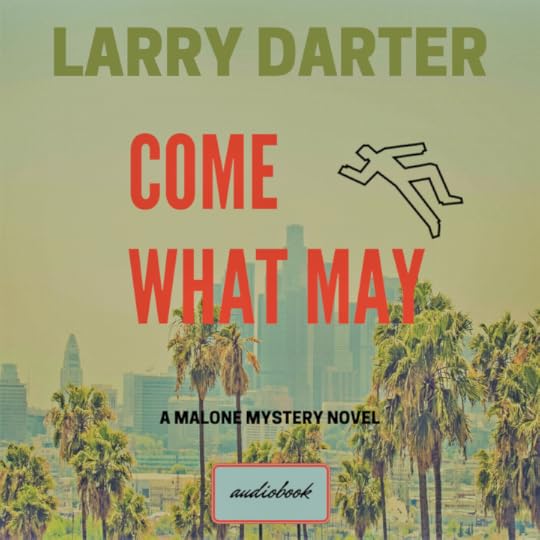
Come What May the Audiobook Coming Soon
I'm pleased to announce that Come What May, the first novel in the Ben Malone Mysteries series will be available as an audiobook in May 2017.
The contract has been signed and production has begun. The audiobook is being produced and narrated by Michael Hanko. It will be distributed by Audiobook Creation Exchange and available from Amazon, Apple iTunes Store, and Audible.com.
I'm really excited about this first venture into audiobook production for several reasons.
First, publishing industry analysts say that audiobooks are currently the fastest growing format publishing. While book sales in print and digital formats are struggling, audiobook sales are exploding, up 38.1 percent in 2015. While the 2016 figures haven't been released, analysts expect audiobook sales to be up by as much as 40 percent, year on year.
Membership in audiobook sites like Audible is also growing at a rate of about 40 percent year on year according to Tracey Markham, country manager for Audible. More people are learning how audiobooks fit into their busy lifestyles.
Publishing the Malone novels in audiobook format offers the chance for me to connect with "readers" who may never pick up a printed copy of the novels or download a digital version to an eReader device.
Another reason I'm really excited about Come What May, the audiobook, is that I was blown away while listening to the first 15-minute sample produced by Michael Hanko. His voice is a perfect fit for the book and frankly, I found listening to the first sample nothing short of mesmerizing. I can't wait to listen to the entire thing once the product has been completed.
If you are an audiobook fan, plan on grabbing a copy of Come What May early next month.
First Translation of Come What May
Released in audiobook format is not the only exciting news this month regarding Come What May.
A contract has also been signed with Italian translator Eva Melisa Mastroianni, of Italy, to translate the first Malone novel into Italian. The Italian language version will be distributed worldwide by literary translation site Babelcube.
Having a book translated into another language is another first for me and something I'm really stoked about. I'm in the process of looking for translators to translate the Malone series into other languages as well like German, Spanish, and French. Ther eare plenty of mystery and thriller readers outside English speaking countries, and every reader should have the opportunity to read a book in his or her native language, whether able to read an English version or not.
I'll provide updates on the availability of Qualunque Cosa Accada, once the translation has been completed.
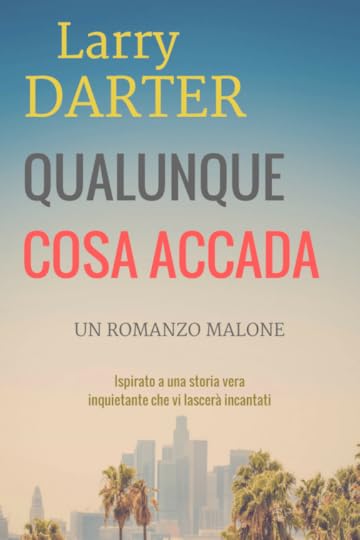
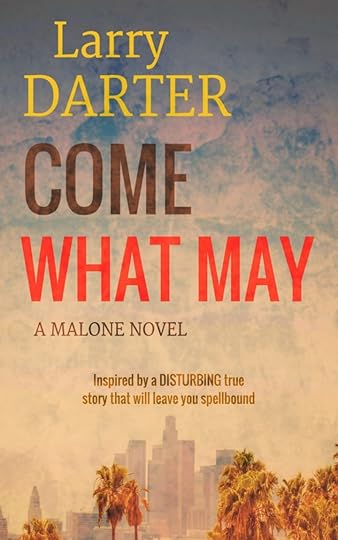
Expanded Distribution in Place for Come What May
Did you know that Come What May is now available from all major electronic book outlets?
Last month I announced that the first Malone novel eBook edition was leaving KDP Select and moving to wide distribution. Published with Draft2Digital, the book is now available from Barnes & Noble, Apple iTunes, Kobo, Scribd, Inktera, 24 Symbols, Indigo, Angus & Robertson, Mondadori Store, as well as Amazon Kindle.
You can easily find Come What May at your preferred eBook retailer by clicking on this handy Books2Read universal book link.
Don't forget that time is running out on the March Madness 99¢ Sale. The offer is good wherever the eBook version of Come What May is sold. The NCAA Basketball Tournament is down to the Elite Eight and the March Madness offer expires on March 31. Grab your discounted copy today before the book returns to regular price on April 1, 2017, at all retailers.
March 23, 2017
It’s Not the Starbucks Boycott We’re Breaking Up
You’re probably aware of the recent calls on social media for a Starbucks boycott triggered by Starbucks CEO Howard Schultz’s widely broadcast corporate memo detailing his plan to hire 10,000 Muslim refugees.
Schultz’s pledge was in response to President Trump’s decision to sign an executive order temporarily halting citizens from some predominantly Muslim countries from entering the US until the federal government developed a means of properly vetting refugees. There was even a trending Twitter hashtag about it, #BoycottStarbucks.
I don’t have a problem with Shultz’s personal opinions. I also applaud his compassion for those fleeing war, violence, persecution and discrimination. What I do have a problem with is his decision to make the Starbucks Corporation a soap box for expounding his own personal social and political ideologies and using the brand as leverage to do so. I also believe because of other statements he has made, that Schultz’s personal dislike and disapproval of President Trump is far more the driver behind his response to the temporary travel ban than his compassion for refugees.
I also believe that a business should stick to its core business and stay out of divisive social and political issues that they have no real qualifications for butting into. Starbucks has some real and pressing customer service issues that they should address before going off on some open borders social activist tangent.
While Starbucks seems to continually add more product lines to entice customers, they continue practices like having only one employee taking orders and operating the cash register even during peak hours. Thus, Starbucks customers suffer inexcusably long delays when attempting to make a purchase at the counter.
The drive through service is even more abysmal if that’s even possible. On average, I’ve routinely spent 15-20 minutes waiting in the drive-through line. During peak hours, the delay is even more horrific. I don’t try to use the drive-through anymore because I simply can’t spare the time.
Generally, I have always purchased just black coffee rather than one of the exotic, handcrafted Starbucks drinks. Starbucks obviously makes a great deal more profit on those drinks than a Grande Pike Place. That’s why the company does nothing to address the fact that customers who want only coffee have to wait in the drive-through behind an endless line of SUVs occupied by 4 or 5 people ordering specialty drinks. Starbucks clearly doesn’t care about coffee only customers. The situation has become even worse since Starbucks expanded their food offerings.
I’m realistic and accept that it isn’t feasible to have a separate drive-through line for coffee only customers. But how about a self-service option for coffee only customers inside the shops? I know the technology exists. I visited a car dealership in Dallas that had one in their waiting area. The Starbucks-branded machine automatically ground the coffee beans and then quickly dispensed a perfectly brewed cup of hot coffee. At the dealership, there was no charge for the coffee. It was complimentary. But it’s the Twenty-First century and technology exists for producing a similar machine with a card swipe where customers could self-serve and self-pay for their coffee. The company I work for has soda and snack machines that have card swipes.
If I haven’t been clear, I find corporate social activism distasteful and inappropriate. I don’t want to hear a corporation’s pet social ideological core values. In return, I don’t burden them with mine. That’s even truer when it comes to a company like Starbuck where I overpay for average coffee, not only a cup at a time but for the whole bean bagged coffee that I’ve been purchasing weekly from Starbucks for more than a dozen years.
I’m not talking about a Starbucks boycott, I’m done with Starbucks
The bottom line? I’m done with Starbucks. Let us be clear. I’m not talking about a Starbucks boycott. A boycott suggests refraining from something temporarily until the offending party changes an objectionable policy. What I’m talking about is a break-up, a permanent discontinuation buying Starbucks products. I won’t stand in their lines or cool my heels in their drive-through lanes any longer. I won’t be making my heretofore weekly visit to local Starbucks for a bag of Pike Place whole beans. I won’t be purchasing birthday and Christmas gifts there for friends and family. I’m fed up with their lousy customer service and the arrogance displayed by their CEO who mistakenly believes I’m a member of some captive audience who must listen to his core values nonsense whether I like it or not. Howard, take your lousy sense of entitlement and shove it. Here is my response.
Dear Starbucks,
I’m sorry, it just isn’t working out between us anymore. I wish I could say it’s not you, it’s me. But I can’t because that wouldn’t be the truth. It isn’t me, it’s you.
For a long while now, I’ve been sick and tired of standing in long lines and sitting in the drive through for 15-20 minutes to buy your overpriced, average coffee. Let’s face it. Your coffee was never spectacular, just middling. Our relationship was never based on anything but a convenience and sadly that part of our relationship has long since disappeared.
I really tried Starbucks. Even when you stabbed me and every other loyal Starbuck Rewards member in the back by eviscerating the rewards program to squeeze out a few more pennies of profit, I tried to stick with you. But CEO Howard Schultz’s decision to turn the Starbucks brand into his own personal social and political activism platform was the last straw.
You see, Starbucks, I’m just an old-fashioned kind of guy. I expect companies that I spend a considerable amount of money with each month to have things like providing more value to all shareholder and customers and quality customer satisfaction as core principles, not the advancement of the personally-held world views of their CEOs. I believe social and political activism is something an individual should pursue on his own time, just as I do. These concepts seem to be lost on Howard. A business should stick to its business, recognizing that involving itself in divisive social and political issues risks alienating long-time loyal customers and driving away business.
The hardest part of losing someone isn’t having to say goodbye. It’s having to learn to live without them. It’s trying to fill the void, the emptiness that’s left behind when they are gone.
I’m sure you will absorb this blow and learn to live without my money. After all, I’m just one customer. I was never under any illusion that I was anything special to you. But it must be said that a good many of my friends, family members, and acquaintances, not to mention a good many of their friends, family members, and acquaintances, and so on and so forth, who feel the same as I do are also saying goodbye to you.
Please don’t worry about me. A part of me will miss you. I’ve made a big investment in our relationship having been a Starbucks Gold member for more than a dozen years. But I’ve met someone new, another coffee roaster who seems to appreciate my business. You will probably think me petty for saying so, but the truth is their coffee is better than yours and it’s less expensive. Even taking shipping into consideration, I still pay considerably less for it per pound than I use to pay for yours at the local store. Best of all, they stick to their business and do not bombard me with their personal social and political views. It really seems like this relationship is going to work.
Breakups hurt. But losing someone who doesn’t respect and appreciate you is a win, not a loss. So, thanks for the memories, Starbucks. It’s been real. But it’s time to say goodbye.
A former customer
Thanks for reading what I realize has been something of a rant. If you love coffee as much as I do, please tune in again next time when I’ll post something a lot more positive, a review of my new preferred coffee roaster.
Save
March 20, 2017
Grammar Nazi Detected: Ominous Trend Aimed at Indie Authors
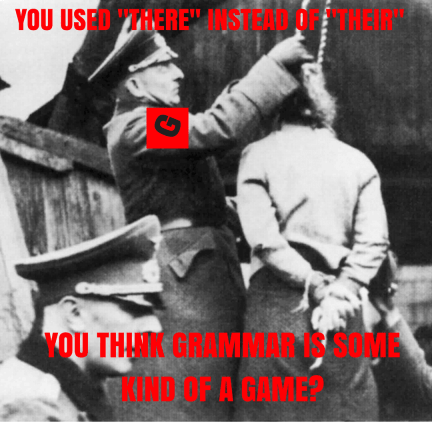
If you’re a reactionary grammar fanatic, so picky about proper grammar that you fall squarely in the realm of anal-retentiveness, and you want to make damn sure everyone knows it, you might be a Grammar Nazi.
As if Indie authors aren’t already facing an uphill battle in pursuit of parity with their traditionally-published peers, increasingly I have noticed a disturbing, and perhaps even sinister new trend. More and more frequently I am finding grammar zealots within the ranks of mid-level book reviewers as well as among some of those who operate book promotional services.
It’s perfectly okay to be passionate about proper English grammar and usage, but once you start to discriminate against a specific class of writers by denying access to services those writers need to attain success in the publishing market, you’ve really taken things too far. That is exactly what I see occurring on a more and more frequent basis. Here are just a few examples of what I’m speaking about.
Below I’ve offered a quote from the author of an article I read today, written by a woman who identifies herself as an avid fiction reader and reviewer. The article chastens Indie authors who do not hire professional editors because she finds their books are riddled with grammatical errors.
“This means flawless editing.”
Here is part of what she had to say. “Look, I might have only been in the book review business for a short time, but I’m a life-long reader. That means nearly three decades of voracious devouring of any (preferably fiction) work I could get my hands on. So, maybe growing up on professionally published novels put out by big publishing houses, has spoiled me. A lot of reviewers are in the same boat. And in addition to being a reviewer, I’m an indie author. I’ve made connections with other indie authors. I know how hard it is to get an agent, let alone a publisher, so I think it’s great that the current technology and climate allow for self-publication. So what’s the problem? The problem, to be blunt, is your editing. Or lack thereof, actually.”
She goes on to say, “In spite of services like Nook Press and CreateSpace that allow ANYONE to publish a book, the gold standard is still traditionally—aka professionally—published work. As an indie author, if we want to have any hope of competing, we must produce work that at a minimum meets those standards. This means flawless editing and formatting.”
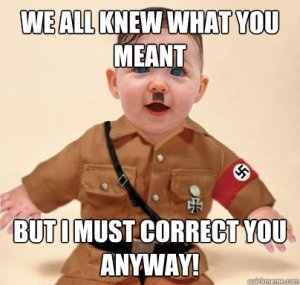
Next, I offer three examples that come from comments readers posted to the article referenced above, posted by three others identifying as avid readers and book reviewers.
“Like you, I am a life-long reader (going on 58 years now), and I too, am an author. I read a lot of indie books because, frankly, I can get them for free or for a discounted price. My biggest red flag when deciding which indie book to read is the blurb. If I find one typo, missed word, or misspelled word in the blurb, I skip it. My feeling is that if there are mistakes in a 250 word blurb, what is the manuscript going to look like?”
“I absolutely agree and have turned down a number of review requests for this exact reason. It’s so sad, because who knows how many of them were actually great stories!”
“As a reviewer, I draw some hard lines on typos: If it can be caught by running the spell check, it is unacceptable no matter how long/short the work. As I said, i love that self-publication is a thing, but it by no means gives one license to cut corners and be lazy. There will always be substandard novels put out, but if, as a community, we can encourage higher standards, we should.”
Not to be petty here, but the comments above were reproduced here verbatim. If you look at all the critical examples above, trust me, you will find minor grammatical errors. Don’t trust me? Fine. Trust Grammarly. The program verified the errors I found reading the comments.
As the final exhibit, I submit into evidence as proof of the ominous trend I’ve observed, something I just came across two weeks ago while submitting my 99 cent March Madness book deal to some book promotion sites. On the book submission page at one of the sites, there was blank for entering the URL of the “professional editor” who edited the book.
Completing the blank was technically optional, but directly beneath was a notice that stated failure to list a professional editor made if very unlikely that the submitted book would be featured or promoted by the site. WTF? Indie authors are already under the gun regarding a minimum number of reviews and “professional” looking book covers by many of the most well-known book promoters. Now we can’t even PAY FOR THE PRIVILEGE of having a book promoted unless we show incontrovertible proof that we paid for professional editing?
Despite how the author of the article I mentioned clearly indulged in the pro-traditionally published stereotypical view that most if not all Indie published books are fraught with typos and grammatical faux pas, I don’t disagree with her overarching premise. Indie authors should strive to produce the best and most professional product they possibly can before publishing it. On the flip side, just about any book whether Indie-published or traditionally published could always be better. And if people didn’t strive for better then we wouldn’t have amazing books in the first place. But to suggest that every book must be flawless is just plain unrealistic.
I allow that professional editing is the ideal, but paying for professional editing is expensive. It may not be right or even financially feasible for many Indie authors. Denying reviews or promotional services to authors who simply can’t afford to have their book professionally edited establishes the same kind of publishing barriers and gatekeepers that the Indie publishing movement has been trying to do away with.
Just when independent authors and publishers are starting to prove that success doesn’t hinge on getting a book deal from a traditional publisher, it seems there are those who want to drag us back to the good old days when publishing houses decided who could become a published author. And that’s where the sinister aspect of this new trend comes to fore. Could it be that many of these book blog reviewers, so tough on grammar, are also freelance editors looking for editing work and a payday? Or perhaps they are working in concert with the big publishing houses in an attempt to make it harder to attain success as a self-publisher.
There is no argument from me that no one should publish a book that has not been carefully proofread and at least polished using one of the many excellent grammar checking software programs available to authors today. There isn’t any excuse for publishing a book filled with typos, or truly egregious grammar errors like incorrect word choices (who vs. whom, too vs. to, affect vs. effect, etc.). My point is simply this. Even smart, educated, and imaginative people, make and miss occasional errors in grammar or spelling.
We all make mistakes. However, a blanket statement like flawless editing is a requirement for anyone publishing a book or we won’t review or promote your book if it hasn’t been professionally edited is nothing short of discrimination and indefensibly wrong. It’s also wrong to nitpick the writing of another over minor grammatical errors that are errors purely in a technical sense, using perfection as the standard when perfection is so rarely achieved even with books published by traditional publishers.
Personally, I never mastered the formal rules of grammar. I was exposed to them beginning with seventh grade English, but I just didn’t get it. While I excelled in lots of other studies like science and history, English grammar just didn’t make sense to me. I learned to write by reading obsessively from an early age, but when it came time to learn the rules of grammar, I failed utterly. If you show me an incorrect sentence today, I can usually fix it, but if you need to know the technical reason why it was incorrect in the first place, I’m the wrong person to ask.
Having said that, you might find it amusing to learn that in the most recent writing update that Grammarly sends me on a weekly basis, showed that I wrote more words than 98% of other Grammarly users did last week and was 97% more grammatically accurate than other Grammarly users. Ninety-seven percent is not “flawless,” but I can live with that. Especially when I have a software program that can help me with the other 3%.
As you probably noticed, I didn’t provide the sources of the quotes used as examples in this post. But the quotes are real, not fabricated. I do believe in including references and giving credit where credit is due. But in this case, I’m simply making a case for something I’ve observed that I believe should stop immediately. It isn’t my intent to belittle or embarrass anyone by engaging in a personal attack. So, by intention, I’ve refrained from providing the article name and have not identified the sources of the quotations used.
I congratulate all the Indie authors out there with the talent to tell compelling stories and the courage to self-publish their own books. I encourage Indie authors to publish the very best and most professional books they possibly can. No one can be expected to do more, and should never wish to do less. But I also say this. Ignore the Grammar Nazis out there who demand perfection, those who simply can’t resist the urge to show us all how much smarter they are than the rest of us when it comes to grammar.
Instead of reading a lot of self-published books because they are free or have a discounted price, maybe the grammar fanatics should pony up the going $14.99 average price for the eBooks from traditional publishers. That way they can avoid suffering the angst they seem to when encountering the occasional typo or squinting modifier.
Becoming a published author truly is within the reach of anyone today. I think that is a good thing. I’ve read some damn good self-published books over the years that weren’t flawless edited, but the stories written in them were amazing. In comparison, I have yet to read a great book this year from any traditionally published author and I’ve read quite a few. Yes, most of those books were perfectly edited, but in many cases a complete bore to read. I’ll take a great book that tells a compelling and entertaining story that has a few grammatical errors and typos any day.
Save
March 18, 2017
I’ve Changed My Perspective on Audiobooks and Here’s Why
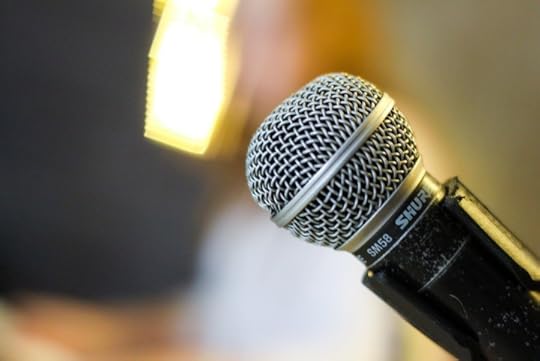
Do you buy and listen to audiobooks?
Maybe I am showing my naivete and evidence of living in my own world (which I will not dispute – read on), but I was truly shocked recently when I read a CNBC article and discovered how popular audiobooks are these days in comparison to print and digital.
Published last year, the article contains some rather eye-catching statistics from 2015 about the relative strength of the book publishing market. As an author, this kind of news is, of course, important to me. First, the article noted that eBook sales are falling worldwide. It seems that there is a definite consumer shift from eBooks to print underway. But despite that, both eBook and print book sales are in general decline. That doesn’t seem to bode well for publishers or authors like me, with the hope of someday being able to at least eke out a modest living on book royalties.
The one truly positive development in book publishing the article mentioned, and the thing I found astonishing, was that the one area of the industry that is experiencing robust growth is audiobooks. As an example, audiobook downloads increased by a whopping 38.1% in 2015. Tracey Markham, a representative of the audiobook service Audible, was quoted as saying, “Audible membership growth is consistent at 40 per cent year on year, as more consumers realise how well audiobooks can fit into their busy lives. Audible members globally listened to 1.6 billion hours of audio content in 2015 (up from 1.2 billion in 2014).”
Just last week, the timeliness of the information gleaned from the CNBC article was driven home for me. I attended a video seminar for authors where one of the presenters emphasized that audiobooks have become a crucial driver of book sales. She advised very strongly that authors who aren’t producing audiobooks should immediately consider doing so.
I have a confession to make. I have never listened to an audiobook in my entire life. Reading from the pages of a good book is simply something I find quite enjoyable. I’ve just never felt the urge to have someone read a book to me instead. Since I’ve never had even the remotest interest in buying or listening to an audiobook, I suppose I just assumed most other book lovers felt the same. As it turns out, obviously, I couldn’t have been more wrong about that.
Isn’t it funny sometimes how our personal reality is so subjective, yet we tend to project our personal views and opinions onto others? Many of us consider ourselves average human beings and thus our perspectives on things a fair representative sample of the views of all human beings with similar interests. But of course, this isn’t true at all. Even among book lovers, every single person is unique and has his or her own reality, perspectives on things, likes, and dislikes.
Based on the unassailable evidence of their popularity that I’ve recently been brought face to face with, I’ve felt compelled to change my opinion on audiobooks. I now see how audiobooks could become an essential part of my efforts to market my new Ben Malone detective mystery & thriller series. I see now that audiobooks might allow me to reach a segment of the “reader” market that I’ll never touch with print and digital formats.
A change of mind is quite useless unless it motivates us to a specific action. Knowing nothing effectively about producing audiobooks, I spent several hours yesterday trying to educate myself about the process. I learned several things quite quickly. I have neither the tools nor the talent to narrate a book myself. I also discovered that it takes a great deal of time to produce an audiobook from a printed one. That’s important because it means paying a professional the going rate “per finished hour” of audiobook production is not cheap. But fortunately, I found there is a way to get an audiobook professionally narrated and produced which doesn’t involve a significant upfront cash investment.
While researching audiobook production, I discovered a service called ACX, a full-service marketplace where authors, literary agents, publishers, and other Rights Holders can connect with narrators, engineers, recording studios, and other Producers capable of producing an audiobook. The process is surprisingly simple.
As an author, I list my book and make a pitch of sorts that a professional narrator and audiobook producer might find interesting. Narrators and producers on the ACX website, check the listings of available books. Any who find my book and have an interest in producing it as an audiobook produce a brief, recorded audition from a text script I provide. I listen to the auditions, and if I find a narrator who seems a good fit for my book, I make them an offer. This is where the story gets interesting for an author who wants to get into the audiobook market but doesn’t want to assume the financial risk alone by paying a hefty upfront “per finished hour” fee.
Offers to audiobook producers through ACX can be in two forms. An author or book publisher can pay for audiobook production at an agreed “per finished hour” rate or can make an offer to a prospective audiobook producer to split the royalties earned from audiobook sales 50/50 with the producer once the audiobook is completed and listed for sale.
If an author agrees to an exclusive audiobook rights arrangement with ACX, the company does all the work getting the book into the sales channels it uses. Currently, these include Amazon, iTunes, and Audible.com, a subsidiary of Amazon. ACX also handles tracking sales and disbursing royalties when earned to both the author and the audiobook producer.
Not keen on investing a huge sum up front on my first dip into the audiobook market, I felt perfectly fine with the 50/50 royalty split arrangement. So, last evening I created an account at ACX and listed Come What May, the first book in the Malone Mystery series.
I wasn’t certain what to expect as far as how many narrators might be interested in submitting an audition or how long the process might take. I’d even come across several articles on the web about not getting discouraged too quickly if ACX narrators didn’t immediately show interest in a book and that had lengthy lists of what you were doing wrong if you couldn’t seem to attract any audiobook producer interest.
Imagine my surprise when I awakened this morning to learn that I had already received three auditions, all three were excellent. All the readings were very professional. But one stood out and was easily my favorite. The actor’s voice just seemed a perfect fit for the Malone novels. Long story short, I’ve already made an offer. The producer has 48 hours to either accept or decline, but since he included a note stating that he was amicable to a royalty split arrangement and I have some flexibility regarding project completion deadlines, I’m cautiously optimistic that he will agree to produce Come What May as an audiobook.
Barring any unforeseen obstacles, I’m hoping to announce the availability of the first Malone novel as an audiobook in early May 2017. I’ll be posting project updates as warranted for anyone interested in following the process.
So, how about you? As a reader, do you buy and listen to audiobooks? Or like me, had you never given audiobooks much thought? I’d really love hearing from readers with an opinion on this topic. If you are an author, who has produced audiobooks I’d be quite keen to hear about your experiences, especially regarding audiobook sales versus the print and digital versions of your books. Please have your say by leaving a comment.
Save
March 17, 2017
St. Patrick’s Day Salute to Irish-American Cops and First Responders

Today, on St. Patrick’s Day, the day when nearly every American becomes Irish for a day, it seems only appropriate to take a minute or two to think about and appreciate the Irish and their contributions to our great nation.
It is estimated that 40 million Americans can trace their ancestry to Ireland and nearly all the population of Ireland have relatives in the United States.
Nowhere are those contributions more evident than in the police and other first responder professions. It seems only fitting to present a salute of commendation to the Irish-Americans in recognition for their contributions as some of the first members of organized first responders in the United States.
If you’ve read Come What May, the first novel in the Malone Detective Mysteries series, you know that protagonist L.A.P.D. Detective Ben Malone traces his ancestry to Ireland. While thanks to television and Hollywood motion pictures, Irish-American cops has largely been rendered a stereotype, there are facts behind the typecast.
By the turn of the 20th century, five out of six NYPD officers were Irish born or of Irish descent. As late as the 1960s, 42% of the NYPD were Irish Americans.
Immigration is a hot-button issue these days, mostly because of the proposals to build a wall on our southern border with Mexico and attempts to restrict the immigration and resettlement of Muslim refugees from the Middle East. While like many Americans, I find myself feeling largely ambivalent about both of those contentious issues, I do find the controversy ironic in one glaring sense.
The most ardent proponents of open borders and advocates of refugee resettlement continually invoke the vision of America as a nation of immigrants. They present America as a country with a long unbroken and unsullied history of welcoming the down and out from other countries. They characterize Americans as people who eagerly embrace and clasp refugees and other immigrants tightly to the bosom of liberty, welcoming them unreservedly to the land of the free, and home of the brave. Such rhetoric shows one of two things.
Either the pro-immigration activists are completely ignorant of American history, or else are actively indulging in the revision of history to square history with their own agendas. The truth is this. America has a rather abysmal track record when it comes to living up to the familiar and hallowed inscription on Lady Liberty.
“Give me your tired, your poor, your huddled masses yearning to breathe free, the wretched refuse of your teeming shore. Send these, the homeless, tempest-tossed to me, I lift my lamp beside the golden door!”
While we have evolved into a nation of immigrants despite ourselves, America has never been particularly welcoming to immigrants. You need to look no further than Irish immigration to see that from the true historical perspective. Throughout her history, America has not exactly rolled out the welcome mat to the tired, poor, huddled masses from abroad, yearning to breathe free, or to the economic refugees seeking a higher standard of living than they could ever hope to attain in their native countries.
The Irish started immigrating to America in large numbers during colonial times. An estimated 250,000 of them migrated to the United States during the era. Many Irish immigrants of the period participated in significant numbers in the American Revolution. One British general went so far as to testify before the House of Commons that “half the rebel Continental Army are from Ireland.”
Given the times of the American Revolutionary period and the make-up of the American citizenry during the period, the colonial wave of Irish immigration to the fledgling United State wasn’t particularly controversial. The fact that the earliest Irish immigrants were predominantly Protestant and spoke English facilitated their assimilation into American society.
However, from 1820 to 1860, when nearly 2 million Irish arrived on these shores, about three-quarters of them after the Great Irish Famine struck in 1845, it was a much different story. The mass immigration of destitute and desperate Irish Catholics, many of whom spoke only Gaelic or a smattering of heavily-accented English, played out quite differently. Neither their religious persuasion nor their lack of command of the English language endeared them to American society.
Beginning in the 1820s, there was a demand for cheap labor for canal building, railroad building, lumbering, and other civil construction works in the Northeast. Those were tough, low-paying jobs that Irish immigrants filled in large numbers. But once the demand for cheap labor started to subside, Americans started to view the Irish as threats to their own job security. Discrimination against the Irish in the workplace and opposition to further Irish immigration became rampant.
While terms like bigotry and xenophobia are fashionable trigger words in the current politically correct charged environment of modern day America, such words and the ideologies they represent has a long and notorious history in this country. Just ask the Irish. In fact, there is a term, Hibernophobia, that refers specifically to anti-Irish sentiments, and that includes racism, oppression, bigotry, persecution, discrimination, and hatred or fear of Irish people as an ethnic group or nation, whether directed against Ireland in general or against Irish immigrants and their descendants.
“Help wanted – no Irish need apply.”
In an atmosphere of oppression, bigotry, discrimination, and unveiled hostility, it was simply a job, a wage, that Irish immigrants were seeking, and they couldn’t afford to be choosy. Largely unskilled, uneducated and typically functionally illiterate, they gladly accepted the most menial jobs at the lowest wage scales, jobs that native-born Americans and other immigrant groups did not want.
In America in the 1840s, job advertisements that read “Help wanted – no Irish need apply” were commonplace. The restriction was used in advertisements for many different types of positions, including store clerks, hotel workers, bartenders, farm workers, house painters, hog butchers, coachmen, bookkeepers, workers at lumber yards, upholsterers, bakers, gilders, and tailors.
Faced with discrimination in the job market, Irish immigrants turned to undesirable jobs with long hours and minimal pay to find work, accepting the menial jobs everyone else looked down on, and no one else wanted. Most of these occupations, which included urban civil service positions, were harsh, offered only low pay, and lacked benefits. Some were outright dangerous.
The only work many Irish could find was “service work” with fire and police departments. The Irish gladly accepted these first responder positions, despite the low pay and inherent risks, as the jobs provided an income and an avenue of integration into American society. Many historians say that the Irish were at the forefront of organized, professional fire and police departments, some going so far as to say that those services wouldn’t be in existence today were it not for the Irish.
Irish-Americans have a proud tradition of service in the police, fire departments, and other first responder agencies across America. While they initially took on these low-paying dangerous jobs because it was the only work to be had, it quickly became a badge of honor to serve their communities in these professions.
Police and firefighter work for many Irish-Americans became the family business, as depicted on the popular television series, “Blue Bloods.” The Irish immigrants who took on first responder professions began having families and their children (and their children’s children) followed in their footsteps. In many of the large American cities like New York, Los Angeles, and Boston, the police and fire departments are still well-represented by men and women of Irish ancestry.
Irish cops may have been largely passed into the myth and legend created by Hollywood, yet the Irish cop on the beat, a peculiar product of a peculiar history, endures as a reality to the present day. No one really knows how many people of Irish extraction are in law enforcement today since the emphasis on tracking demographic categories has shifted to minorities like African Americans, Asian Americans, and Hispanics. Irish-Americans have long since been absorbed statistically into the “white” category. Yet one would be hard-pressed to visit virtually any major police or fire department in the United States today without encountering a police officer of firefighter of Irish ancestry.
Some Americans might well be surprised at just how Irish New York’s first responders remain, even in the 21st-century. As one striking example, the sheer number of Irish surnames, particularly among the 343 FDNY firefighters lost in the 9/11 attack on the Twin Towers, is as astonishing as it is heart-rending.
Life for the Irish immigrating to and living in the United States wasn’t easy. An accurate depiction of the openly displayed hatred towards the Irish can be observed by watching the extremely historically accurate and award winning 2002 film, “Gangs of New York.” But despite the hatred, the Irish eventually prevailed. They persevered, and they overcame to become respected citizens of their adopted nation. Their heroic service as first responders was no small part of that.
As noted, many believe that America owes a debt of gratitude to the Irish for our organized, professional, and fully functioning fire and police departments which might literally not even exist without their contributions. By the twentieth century, not only did Irish-Americans perform such duties, often they filled the highest leadership roles in such organizations as police and fire chiefs and commissioners.
It seems only fitting today, on St. Patrick’s Day, the day when most every American becomes Irish for a day, to give Irish first responders their due, a salute of appreciation or a tip of the cap. Take a moment to think about and appreciate the Irish and their contributions to our great nation.
This retired Irish-American cop doesn’t have a surname like Kelly or Reagan. My Irish roots come from my mom’s side. Yet I come from a long line of Irish-American cops and proudly share the ancestry with my character Malone. I’m also proud of all the Irish-American men and women who continue to serve their communities by heroically performing their duties as first responders, following in the footsteps of our ancestors. Many of them are happy-go-lucky types. Some of them always love a good fight. All of them display the same attributes that perfectly suited those who came before us to police work. Loyalty, bravery, and dedication to public service. To you all, I raise a pint on this St. Paddy’s Day. Thank you for your service.
Save
February 28, 2017
Cold Comfort the Third Novel in the Ben Malone Mystery Series
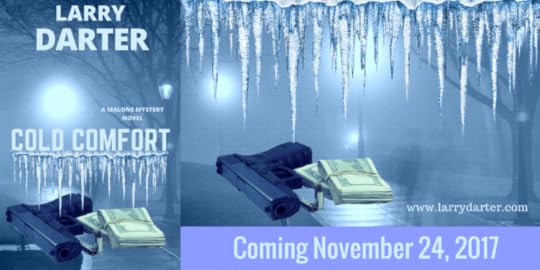
Release Date Set for Third Ben Malone Mystery Novel
We're hurtling towards the April 2017 release date for Fair Is Foul and Foul Is Fair, the second book in the Ben Malone Mysteries Series. But work is already well underway on the next project, Cold Comfort, the third book in the series. The book cover has been finalized and the first draft is progressing well, well enough in fact that I'm comfortable with committing to a firm release date.
"But wilt thou make a fire, or shall I complain on thee to our mistress, whose hand, she being now at hand, thou shalt soon feel, to thy cold comfort, for being slow in thy hot office?"
- The Taming of the Shrew
As those of you who follow this blog know, all the titles in this series come from lines in the plays of William Shakespeare. The titles for the first two books in the series came from Macbeth, but Cold Comfort comes from a different source. The phrase "cold comfort" is found in both The Taming of the Shrew and King John.
"To make his bleak winds kiss my parched lips And comfort me with cold. I do not ask you much, I beg cold comfort; and you are so strait And so ingrateful, you deny me that."
- King John
While Shakespeare may have done much to popularize it, the expression cold comfort and the context in which he used it, poor or inadequate compensation, dates back to at least the 14th century.
The focus of our promotional efforts will increasingly be shifting this month from Come What May to the second book in the Ben Malone Series, Fair Is Foul and Foul Is Fair. Be on the lookout for some "sneak peeks" to be published on our social media feeds. In addition, a dedicated website for book two is in the works and should be live soon. The site will include a link to an extended excerpt from the book.
In case you missed it, during the month of March, the digital edition of Come What May is available from all major eBook retailers for just 99 cents (or the equivalent in international markets). So now is a great time to grab a copy of the first book if you haven't already. If you have read the book and enjoyed it, I'd be most grateful if you would recommend it to a friend or family member. Click this universal book link to go to the page where you will find all the digital stores where the book can be purchased at the special price.
February 25, 2017
March Madness 99 Cent Sale
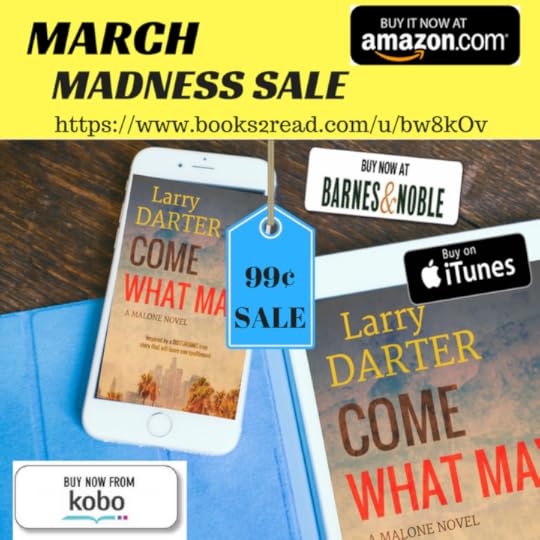
Get Come What May for Just 99¢
For many of us, March Madness brings to mind the men's NCAA Basketball Tournament. Selection Sunday for 2017, slated for March 12, is just around the corner. But if reading a good mystery novel is more your style than watching buzzer-beating jump shots, emerging unlikely heroes, and bracket-busting college basketball upsets, we're celebrating March Madness with a great book deal.
During the month of March, the debut Malone mystery novel, Come What May, will be on sale for just 99 cents. You may never have the chance to make a steal on the hardwoods at the college basketball tournament, but priced at less than a buck, you can get a steal of a deal from your favorite digital bookseller on the first Ben Malone series mystery novel.
Celebrating Expanded Distribution
In addition to celebrating March Madness with this promo, we are also celebrating expanded distribution for Come What May. For readers who don't get their great reads from the Kindle Store, the eBook version is now available from most major booksellers. Here is just a sample.
Click on a Button to Buy Come What May, or to Learn More


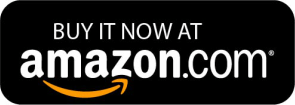

In addition to the above booksellers, Come What May, will also be available for just 99 cents from Inktera and Scribd. Just click this Books2Read universal book link to go to the page showing all the digital stores where you can get the book for 99 cents during this limited time promo.
The actual dates of this limited time promotion are March 12-26, 2017, to correspond with the dates of the March Madness NCAA Tournament. While most of the digital stores respond to prices changes within 48 hours, to accommodate the variances among stores, we will modify the book price on or around March 1 to ensure the promotional price is in effect at all stores no later than March 12.
Have you been thinking about grabbing a copy of Come What May for a while now but just haven't yet? If so, depending on who your favorite digital book retailer is, you should be able to buy a 99 cent copy well before March 12. That should allow ample time for you to read the book (and hopefully post your sterling review on Amazon) and still have plenty of time to fill out your bracket for this year's NCAA tournament.
Okay, I'm kidding about the "sterling review" part, but seriously, I'd be truly grateful if you would post a brief, honest review on Amazon after reading the book. That helps us, authors, more than you know unless of course you are an author too and then you know exactly how much it helps.
Thanks for reading the post and thanks in advance to those who decide to take advantage of the March Madness offer. For those of you who enjoy the men's tournament as much as I do, may the force be with you when you fill in your brackets this year.




